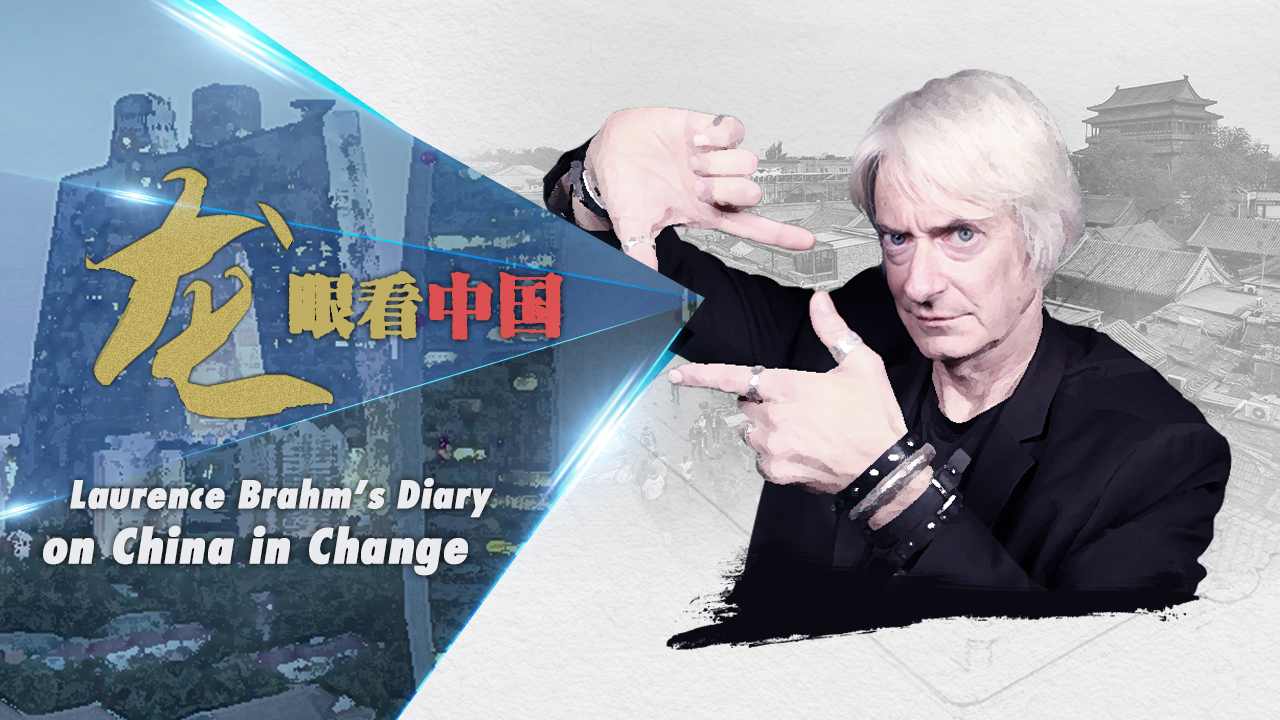
Opinions
08:11, 11-Dec-2018
Opinion: Can U.S. innovation thrive without China?
Updated
08:07, 14-Dec-2018
Laurence Brahm
04:18

Editor's Note: As a lawyer, policy adviser, filmmaker and social enterprise pioneer, Laurence Brahm is not only a keen observer but an active participant in China's reform and opening up. "Laurence Brahm's Diary on China in Change" is a special series dissecting the colossal changes Brahm has witnessed in his 37-year stay in China. In the fourth episode, Brahm shares his views with CGTN on China's innovation.
CGTN: You said in your article that Beijing is imploding with innovation and creative talents, but Western media is simply portraying China the other way round. What's your response to Western allegations?
Brahm: There is so much innovation in China. China today is the world's leader in artificial intelligence and quantum communications. So the development here is just incredible. I'm going to look back to 1981 when I was a student. China had no technology.
In those days there were only big phones. And if we wanted to make a phone call, and I was in the student dorm, going downstairs, you booked a phone call, you'd have to dial out, and you wait in your dorm room for maybe half a day until somebody called you 龙安志同志,有电话 (Long Anzhi, there's a call for you), and then you come downstairs and you pick up the phone. That's how backward it was in 1981.
Now fast forwarding, today, China is not only a leader on cellphone production and usage, but because of the cheap smart cellphone, it's allowing communications to penetrate into some of the most remote parts of the world in South Asia, Southeast Asia, Africa. And with it, you have online payment systems, the introduction of finance into rural communities where there are no banks, through the telecommunications system…. This is all happening in real time.
Now in America, the media says there's no innovation in China. We hear it all the time. Go to Silicon Valley. Who are the programmers behind the big IT firms there? Let me ask you if you didn't have Chinese and Indians working in Silicon Valley for the core of the technology components and all of that programming going on in the tech industry, will America have a tech industry?
CGTN: What is China's advantage in innovation?
Brahm: Let's look back to 1981 again. At that time, the very fledgling private market, you had people coming in the street and repairing bicycles for cash. And so I noticed one day when I was repairing my bike, there was a very, very fancy, kind of almost artistic bike.
And I turned to my classmate from the university and I said, wow, this is very creative, what kind of bike is this? And he said, that's a farmer who has nothing and he picked up all the scrap metals and he himself sort(ed) it together and created his own bike. That told me these people have incredible innovation and the ability to innovate.
One thing about Chinese culture that I really respect is flexibility and ability to change, to meet change. One of the things in the martial arts in China, for instance, Tai Chi or Ba Gua, is all about being able to change on any second, any movement, into a new moment, it is the response to change. So with the trade war, China will have to invest more into R&D, into developing its own chips, into developing all of the different levels of productivity that are required for its own tech industry in the future.
CGTN: How to further institutionalize innovation in China?
Brahm: What needs to be done to further institutionalize innovation in China is to have stronger enforcement. There're a lot of laws for intellectual property. It's the enforcement. It's the ability to go down to a very, very grassroots level.
And that is a weakness in the system that will have to be adjusted and have to be addressed, as China moves forward with its own development and the challenges that new technologies will face in a world which is increasingly dependent on technology innovation. If China is going to be a leader, it will have to be a leader on the intellectual property too.
Reporter: Liu Jianxi
Planning: Li Yunlong
Videographers: Wang Yucheng, Zheng Xiaotian
Video editors: Liu Lian, Xu Qianyun
Producer: Wei Wei
Supervisor: Zhang Shilei
(If you want to contribute and have specific expertise, please contact us at opinions@cgtn.com.)

SITEMAP
Copyright © 2018 CGTN. Beijing ICP prepared NO.16065310-3
Copyright © 2018 CGTN. Beijing ICP prepared NO.16065310-3